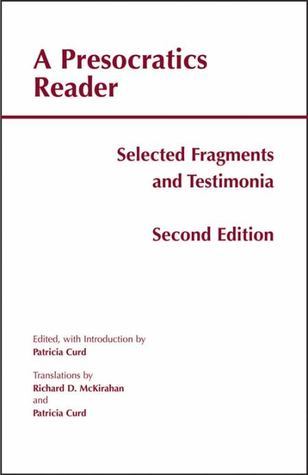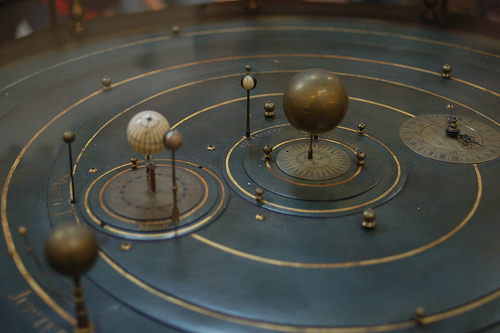What do you think?
Rate this book


200 pages, Paperback
First published January 1, 1996
"What are the Isles of the Blest? Sun and Moon. What is the oracle at Delphi? The tetractys, which is the harmony in which the Sirens sing."
Iamblichus, Life of Pythagoras

"You shall know...the destructive deeds of the shining sun's pure torch and whence they came to be, and you shall learn the wandering deeds of the round-faced moon and its nature, and you shall know also the surrounding heaven, from what it grew and how Necessity led and shackled it to hold the limits of the stars."
Clement, Miscellanies